Top 8 Health Benefits of Cauliflower
Cauliflower is an exceedingly nutritious vegetable that is high in nutrients. It also includes rare plant components that may lower the risk of a variety of ... read more...ailments, including heart disease and cancer. Furthermore, it is weight loss friendly and really simple to incorporate into your diet. Here are the greatest cauliflower health advantages.
-
Cauliflower has an outstanding nutritional profile. Cauliflower is low in calories while being abundant in vitamins. In fact, cauliflower includes practically every vitamin and mineral that your body needs. Here's a rundown of the nutrients included in 1 cup (128 g) of raw cauliflower:
- Calories: 25
- Fiber: 3 grams
- Vitamin C: 77% of the RDI
- Vitamin K: 20% of the RDI
- Vitamin B6: 11% of the RDI
- Folate: 14% of the RDI
- Pantothenic acid: 7% of the RDI
- Potassium: 9% of the RDI
- Manganese: 8% of the RDI
- Magnesium: 4% of the RDI
- Phosphorus: 4% of the RDI
Cauliflower contains vitamin K (20% of the daily goal per cup), which is essential for bone production and is connected to increased fracture risk. The choline in the vegetable, which accounts for around 10% of the daily need per cup, aids with sleep, memory, learning, and muscular activity. Cauliflower also contains trace levels of other important minerals such as B vitamins, phosphorus, manganese, magnesium, and potassium.
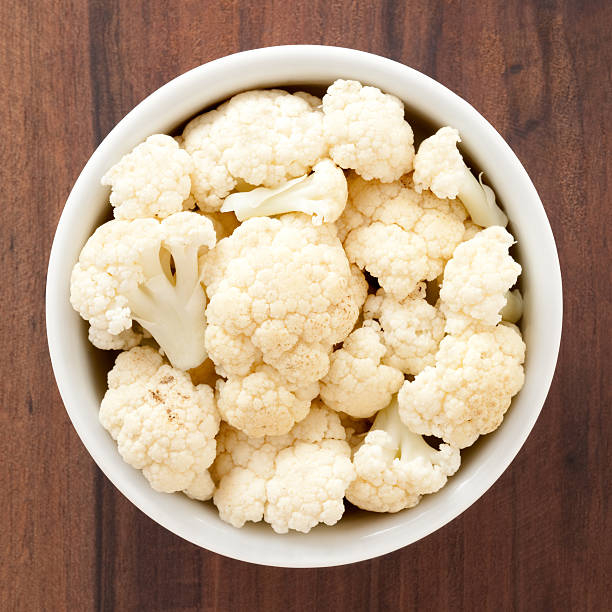
Contains Many Nutrients 
Contains Many Nutrients -
Cauliflower is abundant in fiber, which is good for your general health. One cup of cauliflower has 3 grams of fiber, which is 10% of your daily need. Fiber is vital because it feeds the good bacteria in your gut, which aid in inflammation reduction and digestive wellness.
Fiber consumption may aid in the prevention of digestive problems such as constipation, diverticulitis, and inflammatory bowel disease (IBD). Furthermore, studies suggest that a diet high in fiber-rich vegetables like cauliflower is associated with a decreased risk of a variety of diseases, including heart disease, cancer, and diabetes. Because of its potential to increase fullness and lower overall calorie intake, fiber may also play a role in obesity prevention.
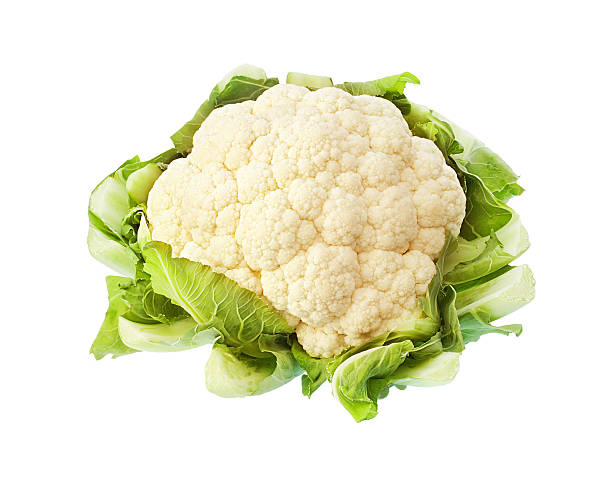
High in Fiber 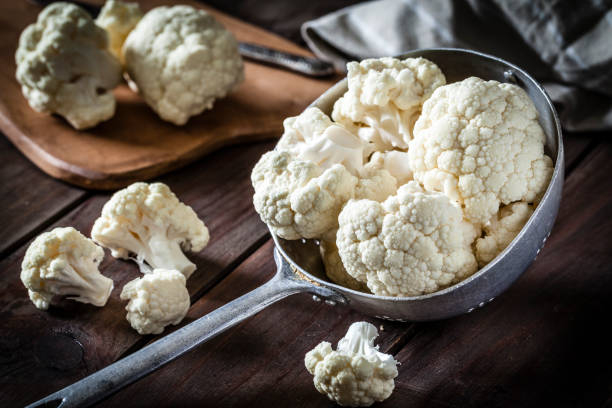
High in Fiber -
Cauliflower is high in antioxidants, which protect cells from free radicals and inflammation. Cauliflower, like other cruciferous vegetables, is high in glucosinolates and isothiocyanates, two antioxidant groups that have been found to impede the development of cancer cells. Glucosinolates and isothiocyanates have been found in animal experiments to be notably protective against colon, lung, breast, and prostate cancer.
Cauliflower also includes carotenoid and flavonoid antioxidants, which have anti-cancer properties and may lessen the risk of a variety of other ailments, including heart disease. Furthermore, cauliflower is abundant in vitamin C, which functions as an antioxidant. It is well-known for its anti-inflammatory properties, which may improve immunological function and lower the risk of heart disease and cancer.
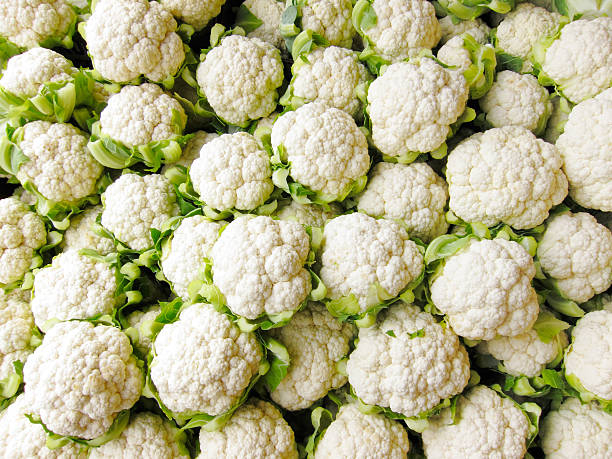
Good Source of Antioxidants 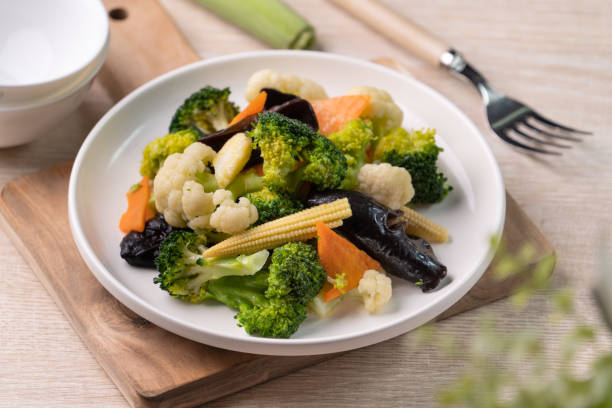
Good Source of Antioxidants -
Cauliflower has a number of characteristics that may aid with weight loss. For starters, at only 25 calories per cup, you can consume a lot of it without gaining weight. It may also be used as a low-calorie replacement for high-calorie items like rice and wheat.
Cauliflower, being an excellent source of fiber, slows digestion and improves feelings of fullness. This may limit the number of calories you consume during the day, which is an essential element in weight control. Another weight-loss-friendly feature of cauliflower is its high water content. In fact, water accounts for 92 percent of its weight. Consuming plenty of water-dense, low-calorie meals have been linked to weight loss.
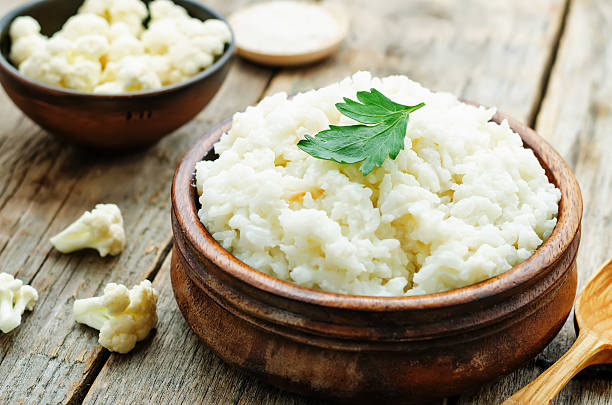
Aid in Weight Loss 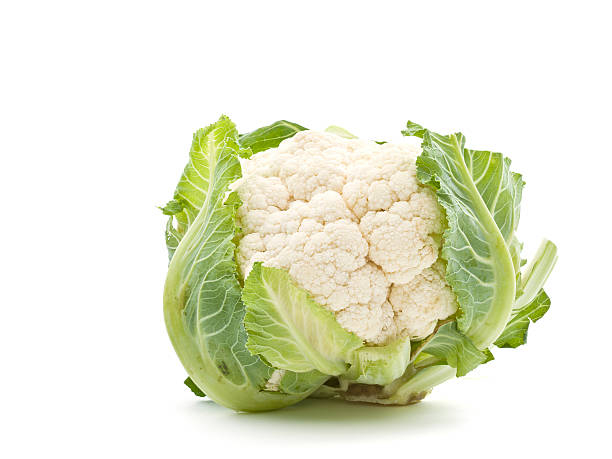
Aid in Weight Loss -
Cauliflower is rich in choline, an important vitamin that many people lack. One cup of cauliflower provides 45 mg of choline, which accounts for around 11% of the adequate intake (AI) for women and 8% for males. Choline serves various roles in the body. To begin, it is essential for preserving the integrity of cell membranes, generating DNA, and sustaining metabolism.
Choline also plays a role in brain growth and the creation of neurotransmitters, which are required for a healthy nervous system. Furthermore, it aids in the prevention of cholesterol buildup in the liver. Those who do not ingest enough choline may be at increased risk of liver and heart disease, as well as neurological illnesses such as dementia and Alzheimer's. Choline is not found in many foods. Cauliflower, like broccoli, is an excellent plant-based provider of vitamin.
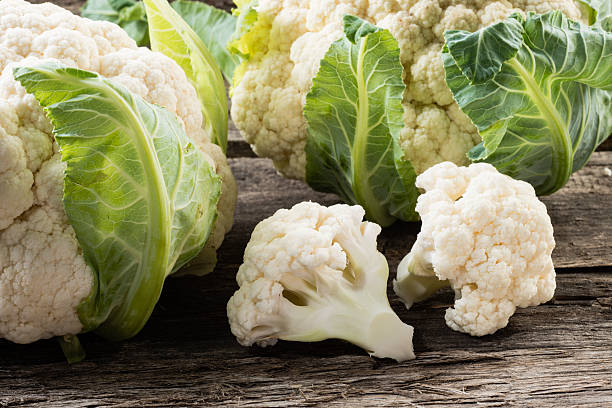
High in Choline 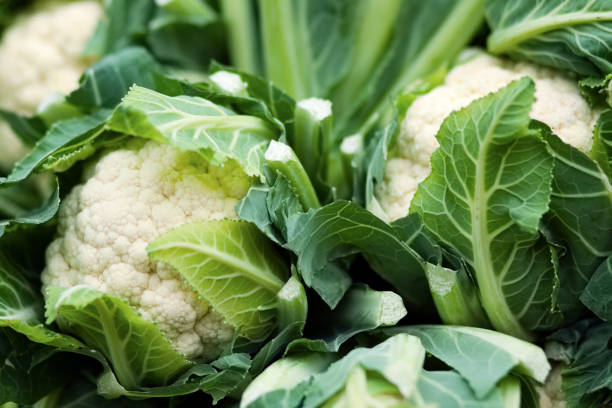
High in Choline -
Sulforaphane, a well-studied antioxidant, is found in cauliflower. Many test-tube and animal research have revealed that sulforaphane is very effective at reducing cancer formation by blocking enzymes involved in cancer and tumor growth. According to some research, sulforaphane has the ability to slow cancer progression by killing damaged cells.
Sulforaphane appears to be particularly protective against colon and prostate cancer, although it has also been examined for its effects on breast, leukemia, pancreatic, and melanoma cancers. According to research, sulforaphane may also help lower blood pressure and keep arteries healthy, both of which are important factors in preventing heart disease. Finally, animal studies show that sulforaphane may help prevent diabetes and lower the risk of diabetes-related comorbidities including renal disease. While additional study is needed to assess the degree of sulforaphane's effects in humans, the prospective health advantages are encouraging.
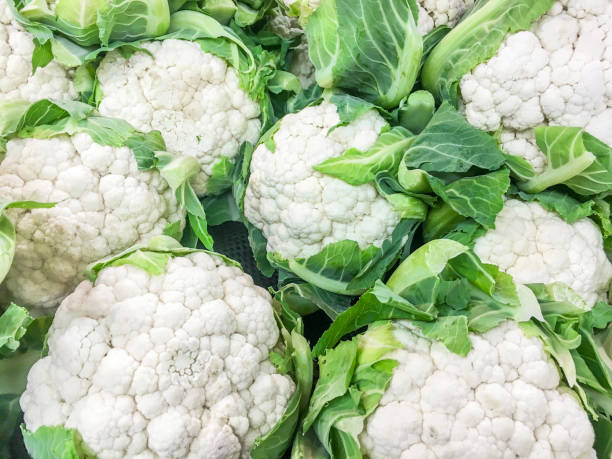
Rich in Sulforaphane 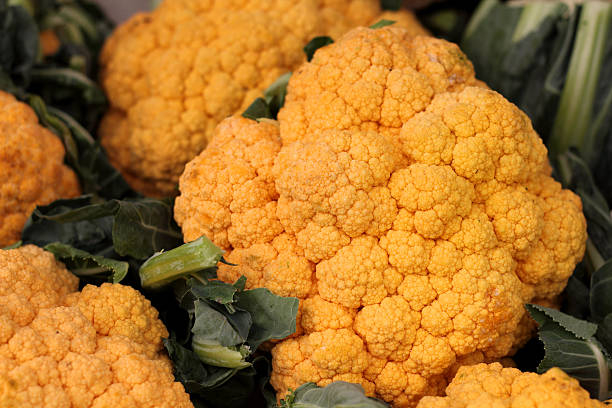
Rich in Sulforaphane -
Cauliflower is extremely adaptable and may be used in lieu of grains and legumes in your diet. This is not only a great method to enhance your veggie intake, but it is also extremely beneficial for individuals on low-carb diets. This is because cauliflower has far fewer carbohydrates than grains and legumes. A cup of cauliflower, for example, has 5 grams of carbohydrates. At the same time, a cup of rice has 45 grams of carbohydrates, which is nine times that of cauliflower.
Here are some dishes that may be created using cauliflower instead of grains and legumes:
- Cauliflower rice: Replace white or brown rice with cauliflower that has been grated and then cooked, as in this recipe.
- Cauliflower pizza crust: By pulsing cauliflower in a food processor and then making it into a dough, such as in this recipe, you can make a delicious pizza.
- Cauliflower hummus: Chickpeas can be replaced with cauliflower in hummus recipes like this one.
- Cauliflower mash: Instead of making mashed potatoes, try this recipe for a low-carb cauliflower mash that is easy to make.
- Cauliflower tortillas: Combine pulsed cauliflower with eggs to make low-carb tortillas that can be used for wraps, taco shells, or burritos, as in this recipe.
- Cauliflower mac and cheese: Cooked cauliflower can be combined with milk, cheese, and spices to make mac and cheese, like in this recipe.
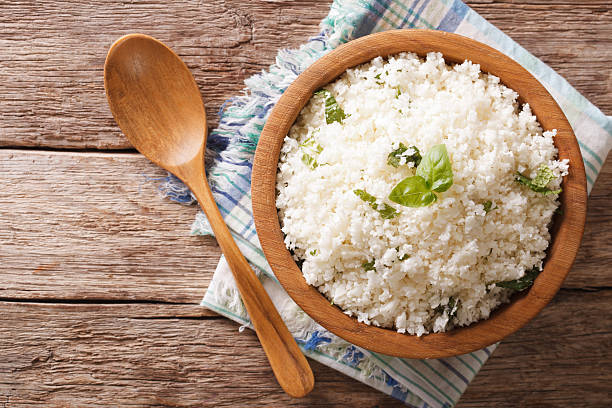
Low-Carb Alternative to Grains and Legumes 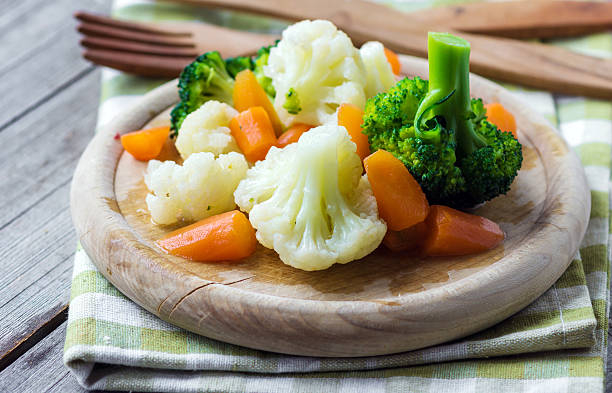
Low-Carb Alternative to Grains and Legumes -
Cauliflower is a cruciferous vegetable, along with Brussels sprouts, kale, broccoli, cabbage, collard greens, and bok choy. As a result, it lowers the risk of both heart disease and cancer, the two major causes of mortality in the United States. Cruciferous vegetables have natural chemicals that protect the bends and branches of blood vessels—areas prone to inflammation—making them an effective heart defender. This is probably why a higher diet of cruciferous vegetables has been linked to a decreased risk of artery hardening in women.
Natural chemicals found in cauliflower and other cruciferous vegetables have also been demonstrated to inhibit cancer-causing compounds and prevent cancer from spreading. According to a review of the available evidence, there is an inverse link between cruciferous vegetable consumption and the risks of heart disease, cancer, and mortality from any cause, making cauliflower a major health-protective diet.
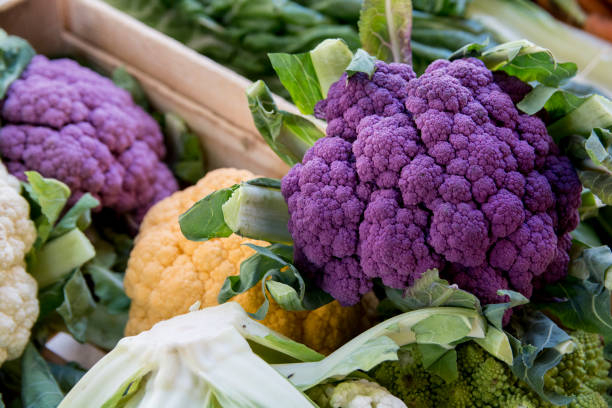
Fend Off The Nation’s Top Two Killers 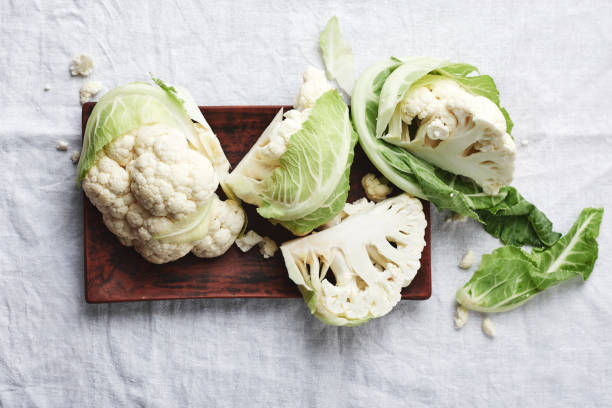
Fend Off The Nation’s Top Two Killers





























